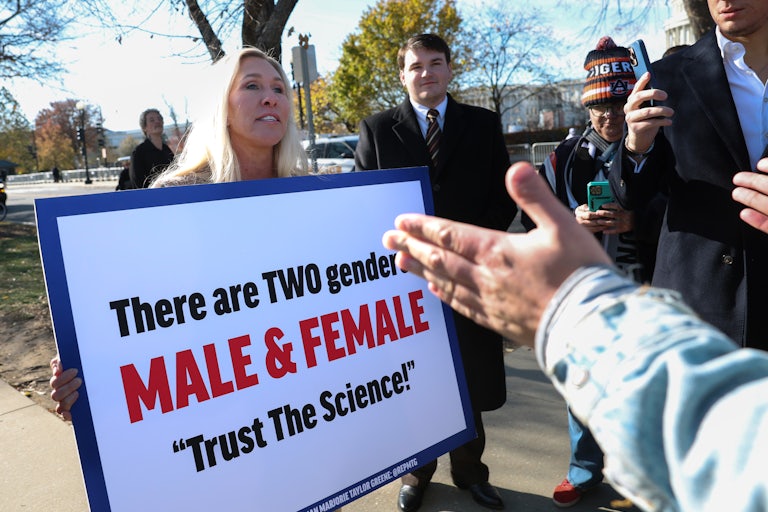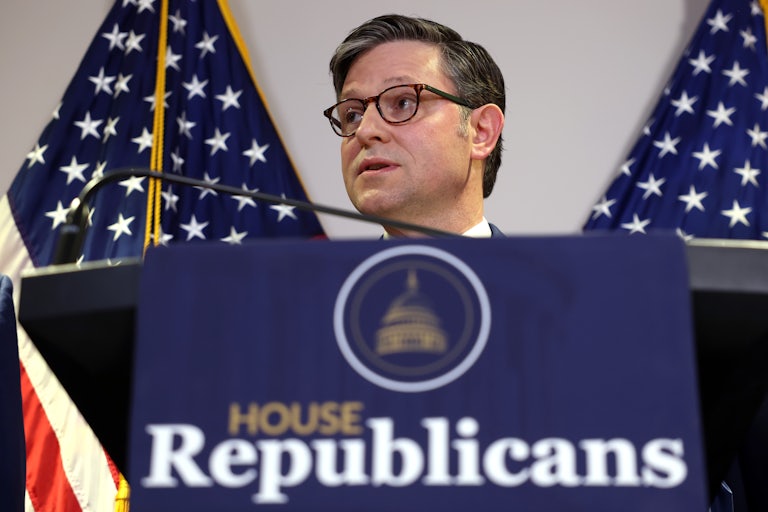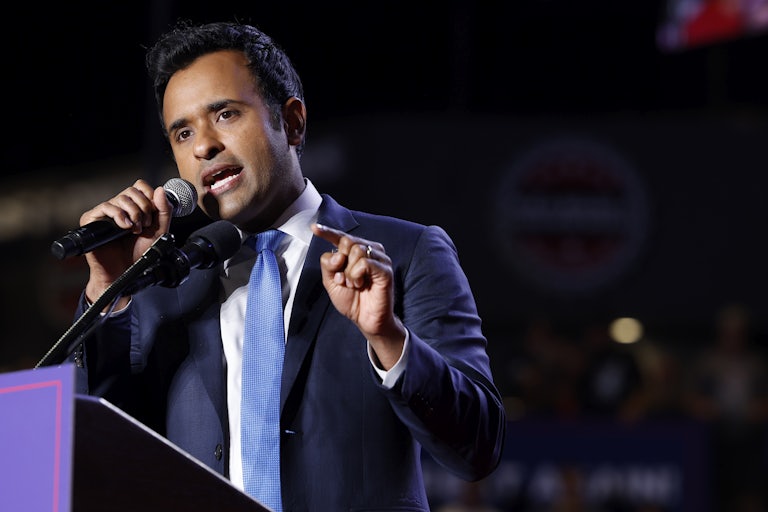Amy Coney Barrett’s Mind-Boggling Question in Supreme Court Trans Case
Surprise! The conservative Supreme Court justices don’t seem to have any basic understanding of trans rights in this country.

Supreme Court Justice Amy Coney Barret asked a team of ACLU lawyers advocating for trans rights if trans people had ever really been discriminated against.
The court on Wednesday held oral arguments in United States v. Skrmetti, a landmark case originating from Tennessee that could decide just how far the federal government has to go, if at all, to protect the rights of trans people. In 2023, Senate Bill 1 became law in Tennessee, banning hormone therapy and puberty blockers for minors and imposing civil penalties on doctors who don’t fall in line. Skrmetti is challenging S.B. 1, but the conservative justices don’t seem to be having any of it.
“One question I have is, at least as far as I can think of, we don’t have a history—that I know of—we don’t have a history of de jure discrimination against transgender people,” Coney Barrett said during oral arguments on Wednesday morning. “You point out in your brief that in the last three years there might have been these laws, but before that we might have had private societal discrimination.… Is there a history that I don’t know about where we have de jure discrimination?”
By de jure Coney Barrett means “federally mandated,” and she goes on to note that other minority groups have experienced that kind of discrimination, while to her knowledge trans people haven’t.
U.S. Solicitor General Elizabeth Prelogar responded immediately. “Historical discrimination against transgender people may not have been reflected in the laws. But I think there’s no dispute that there is a broad history here and it hasn’t just been confined to private actors,” she said. “I think that if you actually looked at the facts there’s a wealth of evidence to suggest that transgender people throughout history have been subjected to violence, discrimination, and maybe lost employment opportunities, housing opportunities.”
Attorney Chase Strangio, the first transgender lawyer to argue in front of the Supreme Court, also later addressed Coney Barrett’s tone-deaf question.
“Transgender people are characterized as having a different gender identity than their birth sex. That is distinguishing,” Strangio said. “I would also point, if I could, to the history of discrimination—and there are many examples—of in-law discrimination, exclusions from the military, criminal bans on cross-dressing, and others.”
Coney Barrett has a history of judicial hostility toward LGBTQ issues, and trans rights specifically. She defended the dissenting justices on the Marriage Equality Act, has argued Title IX rights shouldn’t apply to trans people, and personally believes that marriage should be between a man and a woman.
Tennessee is just one of 26 states with laws that ban gender-affirming care for minors.









